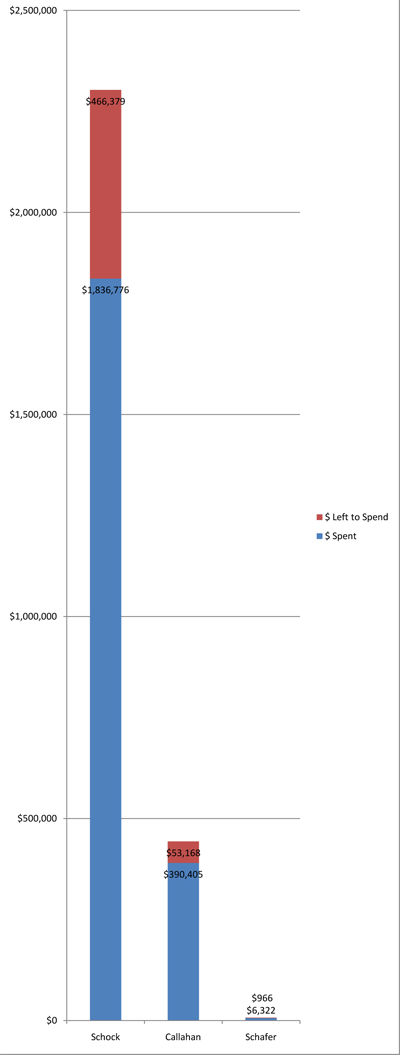Eleven years ago, Aaron Schock was nineteen, just out of high school, and a candidate for the Peoria Public Schools Board of Education. At the time, 200 signatures were required to get on the ballot, and he filed 220.
Attorney Bob Hall, a close friend of Schock’s opponent (board president Rhonda Hunt), contested the signatures and found a number of irregularities. One of the petitions wasn’t signed by the person who circulated it. Several of the signers were not registered voters. Some of them didn’t put their addresses on the petitions.
“You might say it’s picky,” Hall told the Journal Star. “But pickiness is exactly what the Legislature expected.”
Hall prevailed and Schock was thrown off the ballot. Everyone remembers what happened next: Schock mounted a write-in campaign and beat Hunt for the school board seat anyway. It’s a real David vs. Goliath story.
Not so well remembered is Schock’s initial reaction to getting booted from the ballot.
“I think its ridiculous,” Schock was quoted as saying by the Journal Star on February 2, 2001 — eleven years ago today. “It shows Rhonda Hunt’s true character, that she is willing to use ruthless tactics and try to keep me off the ballot, and to stop the people of Peoria from having a choice of who they want to represent them on the School Board.”
According to the paper, “[Schock] said these were small mistakes, and he doesn’t think it jeopardizes the integrity of his ballots. ‘It was not intentional in any way. I am new to the political process. The technicality they have got me on was human error. I think it’s ridiculous. This is why people don’t get involved in politics. I think it is a disgrace in American politics.'”
Fast-forward to February 2, 2012. Schock is now the incumbent U.S. Representative from the 18th Congressional District, and he is being challenged in the primary by Darrel Miller. Some friends of Schock contested Miller’s petitions, and today Miller was tossed from the ballot:
Last month, Central Illinois Republican officials Michael Bigger of Wyoming, Ill., and Katherine Coyle of Peoria filed official challenges to Miller’s candidacy with the State Board of Elections. Bigger said he pursued the objection independently, not at the request of Schock’s campaign, after noticing several signatures collected by Miller came from Schock’s “close, personal friends.” He said that made him suspicious.
Miller had expressed confidence that enough of his 730 signatures would survive to give him the required 600. But a records exam and subsequent review found Miller’s petition contained only 583 valid signatures, 17 short of the minimum requirement. […]
Miller told WJBC on Thursday that he was certain his signatures were from registered voters who live in the 18th District. But Miller said the board’s questions centered on the “genuineness” of his signatures – specifically the 80 or so that were printed names, not traditional signatures. He said he lost around 50 signatures only because they were printed. […]
Miller represented himself during Thursday’s session in Springfield, and he admitted he was in “over his head.” His advice to anyone else looking to run for Congress: get three times the number of required signatures, to be safe.
Technicalities. Small mistakes. Someone new to the political process and in “over his head.” Sound familiar?
Miller was a gracious loser by all accounts. It could be that he’s older, wiser, and more circumspect in his speech than a 19-year-old kid. Or maybe he’s just accepted the fact that politics is a dirty business.
But what does Schock think about this? Surely his friends told him they were going to do this. Why didn’t he stop them from disgracing American politics? Doesn’t he think this stops the people of the 18th Congressional District from having a choice of who they want to represent them? Doesn’t he think this keeps good people from running for office? Doesn’t he think his tacit approval of these “ruthless tactics” reveal his “true character”? Or has he changed his mind over the past 11 years?
“Schock’s campaign declined to comment on the state board’s decision.” (Journal Star)
My suggestion to Miler: Run as a write-in.художник на икониИкони на светци

